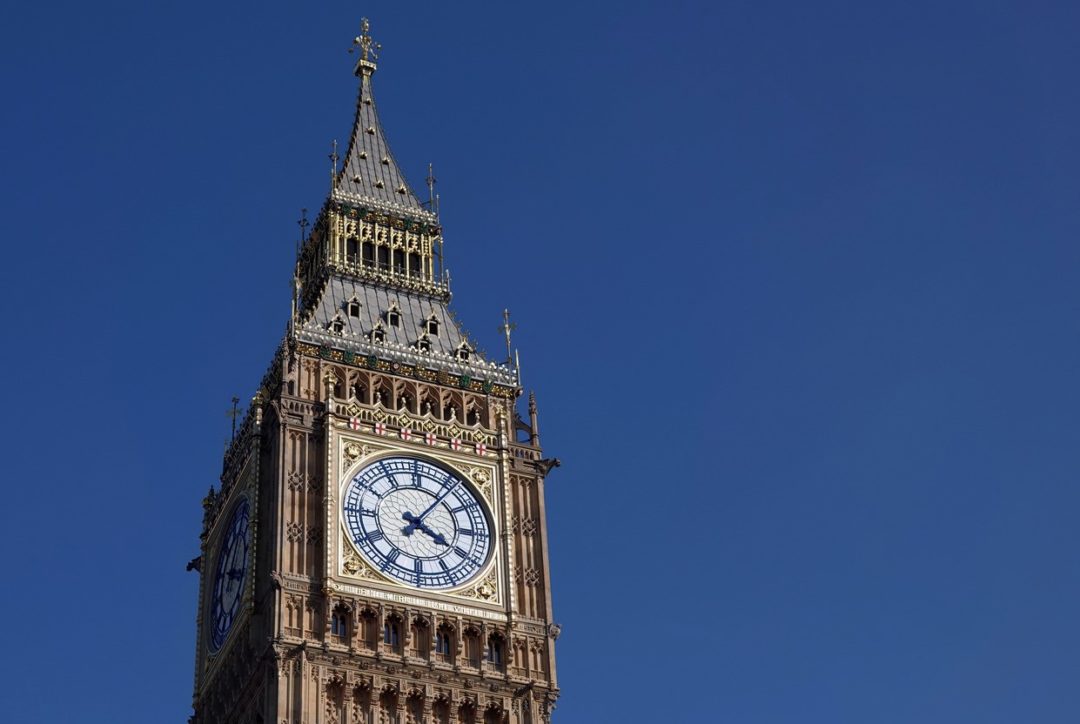
Visit Our Sponsors |
|
|
|
|
|
|
|
|
|
|
|
|
|
|
|
|
|
|
|
|
|
|
|
|
|
|
|
|
|
|
|
|
|
|
|
|
|
|
|
|
|
|
|
|
|
|
|
|
|
|
|
|
|
|
|

Photo: iStock.com/Nigel Harris
The U.K. government will unveil legislation in January to set minimum service levels in essential sectors, while inviting trade unions in for new talks to discuss public sector pay settlements in 2023-24.
The law would enforce a minimum level of service for fire, ambulance and rail services and a bill would be introduced to Parliament in the weeks ahead, the Department for Business, Energy and Industrial Strategy said in a statement January 5.
The bill would also cover health care, education, nuclear decommissioning and border security, although service levels in those areas would be based on voluntary agreements, the statement said.
As part of an apparent carrot-and-stick approach, the government simultaneously announced that it was inviting union leaders in for talks on next year’s public sector pay settlements. Discussions would take place on issues including pay evidence, workload and conditions, the government said.
The statement made no reference to any offer of improved pay this year, as demanded by unions, but did urge them to cancel upcoming strikes while conversations take place.
‘Undemocratic’
The U.K., the world's sixth largest economy, is in the grip of an increasingly disruptive wave of strikes. In the latest walkout, several train operators were unable to run any services into or out of London on January 5 because of a strike by Aslef, the train drivers’ union. Office occupancy in London plunged to a little over 20% during stoppages earlier this week, down from more than 50% on Tuesdays in November.
Data from the Office for National Statistics also showed that more than a quarter of companies affected by strikes said they’d been unable to obtain products necessary for their business. The figures were from November, before industrial action was escalated in December.
December may have seen the biggest monthly loss of working days to industrial action since 1989, when Margaret Thatcher was in power. They include the first ever national strike by nurses, protesting at pay that’s failing to keep pace with soaring inflation.
Royal College of Nursing Chief Executive Pat Cullen said in a statement that while her union will meet with ministers, only negotiations will avert a planned strike later in the month. Commenting on the planned legislation, she said: “Curtailing workers’ freedom to participate in lawful industrial action is always undemocratic and we will look closely at what the government releases.”
Dismissal threat
Prime Minister Rishi Sunak first touted the anti-strike laws late last year, in response to industrial disputes that have also seen nurses and ambulance drivers go on strike.
The legislation would allow employers to fire striking workers in essential sectors and sue trade unions if they fail to provide a minimum level of service, a person familiar with the matter said. The U.K.’s Times newspaper was first to report the story.
The government expects some opposition to the legislation in the House of Lords, where some peers may seek to water down its provisions, while trade unions may seek to oppose it in the courts. While the House of Lords is unable to prevent bills passing into law, except in certain limited circumstances, it can delay bills and force the lower chamber, the House of Commons, to reconsider their decisions.
“We hugely value the work of our public services and we’re reaching out to unions to have an honest conversation on pay, conditions and reform,” U.K. Business Secretary Grant Shapps said in the statement.
Starmer
“Industrial action is disruptive for everyone — from people relying on essential services to get to work or care for their family to hard-working business owners whose sales suffer. It also costs those striking at a time when family budgets are tight.”
The leader of the opposition party, Labour, Keir Starmer — whose party enjoys a double-digit lead in the polls — told reporters January 5 that he would repeal the laws if he becomes prime minister.
“If it’s further restrictions, then we will repeal it,” Starmer said. “I don’t think the legislation is going to work,” he added, saying he suspected the government had received advice showing it was “likely to make a bad situation worse.”
Sharon Graham, general secretary of the Unite union, charged Sunak with “silly posturing and game playing,” while UNISON head of health Sara Gorton accused the government of “picking ill-advised fights with NHS employees.”
RELATED CONTENT
RELATED VIDEOS
Timely, incisive articles delivered directly to your inbox.







